Fuel Tank Replacement Pickup
Removal Procedure
- Relieve the fuel system pressure. Refer to the Fuel Pressure Relief .
- Drain the fuel tank. Refer to Fuel Tank Draining .
- Remove the fuel fill pipe housing to body screws (1) and retainer (2).
- Remove the fuel fill pipe housing to fuel fill pipe bolts.
- Remove the fuel fill pipe housing.
- Remove the vent hose from the clip on the fuel fill pipe.
- Raise and suitably support the vehicle. Refer to Lifting and Jacking the Vehicle in General Information.
- Remove the fuel fill pipe ground strap bolt.
- Loosen the fuel fill hose clamp at the tank.
- Remove the fuel fill pipe/hose.
- Remove the evaporative emission (EVAP) canister. Refer to Evaporative Emission Canister Replacement .
- Disconnect the fuel return and feed pipes from the fuel tank pipes. Refer to Plastic Collar Quick Connect Fitting Service .
- Disconnect the EVAP pipe from the fuel tank EVAP pipe. Refer to Plastic Collar Quick Connect Fitting Service .
- Cap the fuel and EVAP pipes in order to prevent possible fuel system contamination.
- Remove the fuel tank shield, if equipped.
- Support the fuel tank with a suitable jack.
- Remove the fuel tank strap bolts.
- Remove the fuel tank straps.
- With the aid of an assistant, lower the fuel tank, until the electrical connectors are accessible.
- Disconnect the fuel sender and fuel pressure sensor electrical connectors.
- Place the fuel tank in a suitable work area.
- Disconnect the fuel feed pipe (4) and fuel return pipe (5) from the fuel sender (2) and the retaining clips (6). Refer to Plastic Collar Quick Connect Fitting Service .
- Disconnect the EVAP pipe (1) from the fuel sender (2), the fuel tank roll over valve (3), and the retaining clips (6). Refer to Plastic Collar Quick Connect Fitting Service .
- Remove the fuel sender, if required. Refer to Fuel Sender Assembly Replacement .
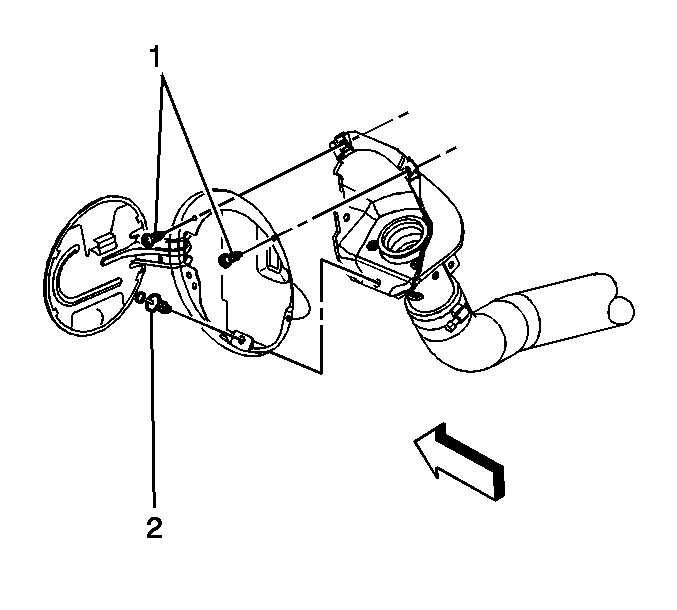
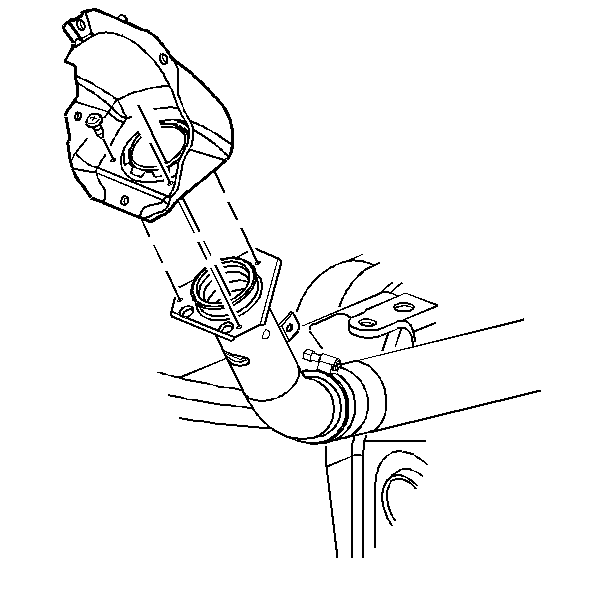
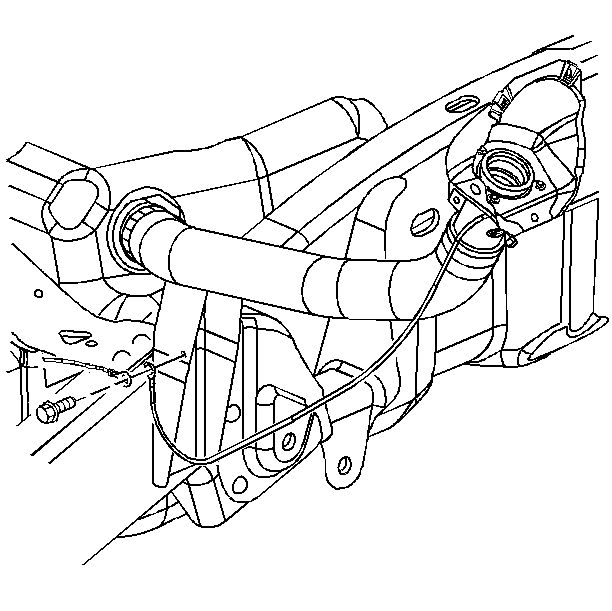
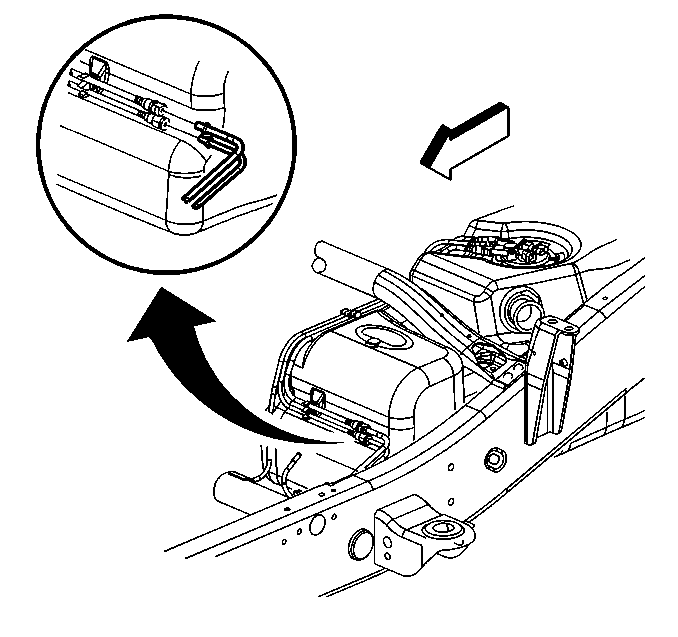
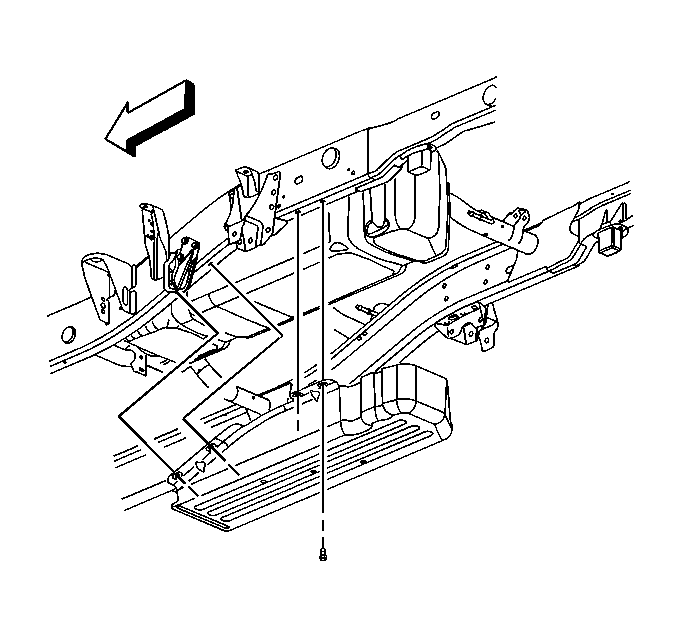
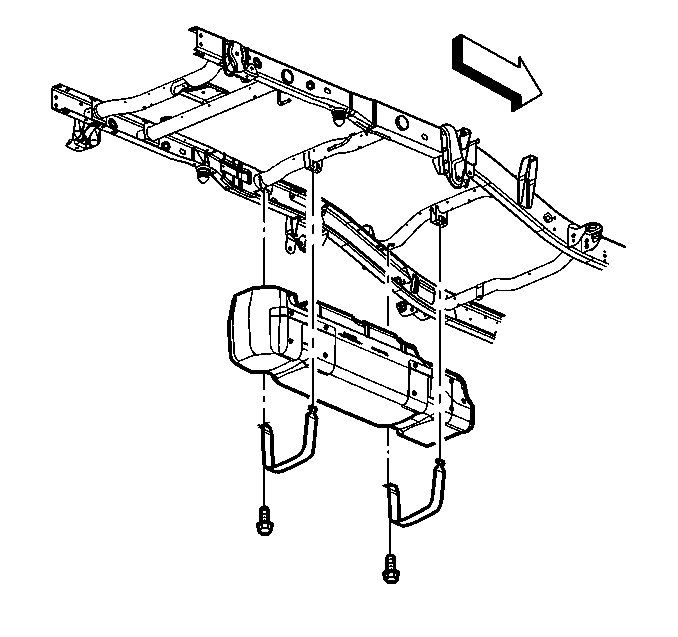
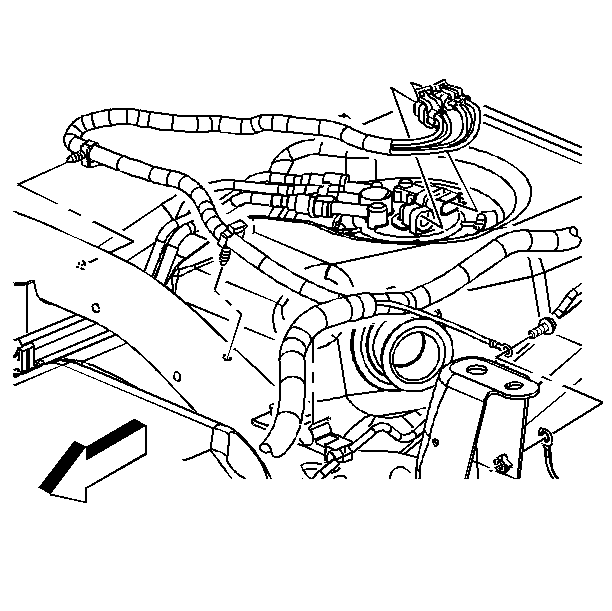
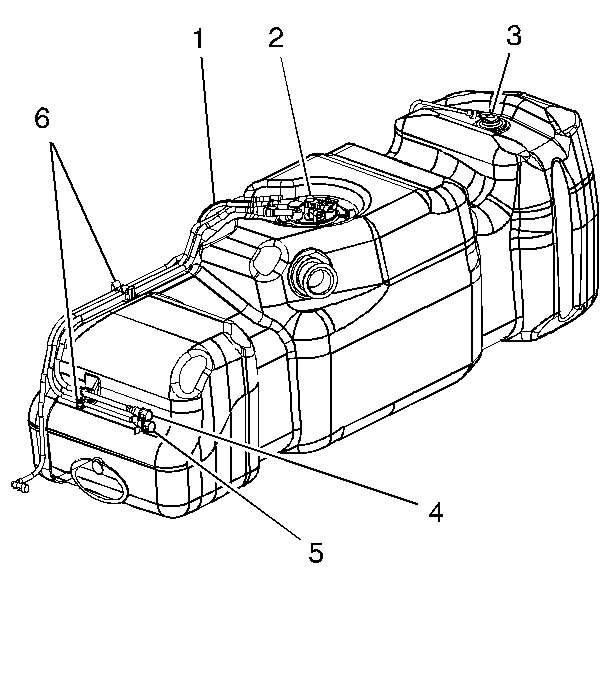
Installation Procedure
- Install the fuel sender, if required. Refer to Fuel Sender Assembly Replacement .
- Connect the EVAP pipe (1) to the fuel sender (2), the fuel tank roll over valve (3), and the retaining clips (6). Refer to Plastic Collar Quick Connect Fitting Service .
- Connect the fuel feed pipe (4) and the fuel return pipe (5) to the fuel sender and the retaining clips (6). Refer to Plastic Collar Quick Connect Fitting Service .
- With the aid of an assistant, place the fuel tank on a suitable jack.
- With the aid of an assistant, raise the fuel tank.
- Connect the fuel sender and fuel pressure sensor electrical connectors.
- Install the fuel tank.
- Install the fuel tank straps.
- Install the fuel tank strap bolts.
- Remove the jack.
- Install the fuel tank shield, if equipped.
- Remove the caps from the fuel and EVAP pipes.
- Connect the EVAP pipe to the fuel tank EVAP pipe. Refer to Plastic Collar Quick Connect Fitting Service .
- Connect the fuel return and feed pipes to the fuel tank pipes. Refer to Plastic Collar Quick Connect Fitting Service .
- Install the EVAP canister. Refer to Evaporative Emission Canister Replacement .
- Install the fuel fill pipe/hose.
- Tighten the fuel fill hose clamp at the tank.
- Install the fuel fill pipe ground strap bolt.
- Lower the vehicle.
- Install the vent hose to the clip on the fuel fill pipe.
- Install the fuel fill pipe housing.
- Install the fuel fill pipe housing to fuel fill pipe bolts.
- Install the fuel fill pipe housing to body screws (1) and retainer (1).
- Refill the fuel tank.
- Install the fuel fill cap.
- Use the following procedure in order to inspect for leaks:



Notice: Use the correct fastener in the correct location. Replacement fasteners must be the correct part number for that application. Fasteners requiring replacement or fasteners requiring the use of thread locking compound or sealant are identified in the service procedure. Do not use paints, lubricants, or corrosion inhibitors on fasteners or fastener joint surfaces unless specified. These coatings affect fastener torque and joint clamping force and may damage the fastener. Use the correct tightening sequence and specifications when installing fasteners in order to avoid damage to parts and systems.
Tighten
Tighten the bolts to 40 N·m (30 lb ft).



Tighten
Tighten the clamp to 2.5 N·m (22 lb in).
Tighten
Tighten the bolt to 9 N·m (80 lb in).

Tighten
Tighten the bolts to 2.3 N·m (20 lb in).

Tighten
Tighten the screws to 2.3 N·m (20 lb in).
| 26.1. | Turn ON the ignition, with the engine OFF, for 2 seconds. |
| 26.2. | Turn OFF the ignition for 10 seconds. |
| 26.3. | Turn ON the ignition, with the engine OFF. |
| 26.4. | Inspect for fuel leaks. |
Fuel Tank Replacement Cab/Chassis - Front
Removal Procedure
- Relieve the fuel system pressure. Refer to the Fuel Pressure Relief .
- Raise the vehicle. Refer to Lifting and Jacking the Vehicle in General Information.
- Drain the fuel tank. Refer to Fuel Tank Draining .
- Remove the fuel tank shield (1).
- Disconnect the fuel fill and vent pipe (2) from the fuel tank.
- With the aid of an assistant, support the fuel tank.
- Remove the fuel tank strap attaching bolts.
- Remove the fuel tank straps (1).
- Carefully lower the fuel tank slightly.
- Disconnect the fuel and evaporative emission (EVAP) pipes. Refer to Metal Collar Quick Connect Fitting Service .
- Disconnect the fuel sender and the fuel pressure sensor harness connectors.
- Remove the fuel tank.
- Place the fuel tank in a suitable work area.
- Remove the fuel sender assembly from the fuel tank. Refer to Fuel Sender Assembly Replacement .
- Cap the fuel and EVAP pipes on the vehicle in order to prevent possible fuel system contamination.
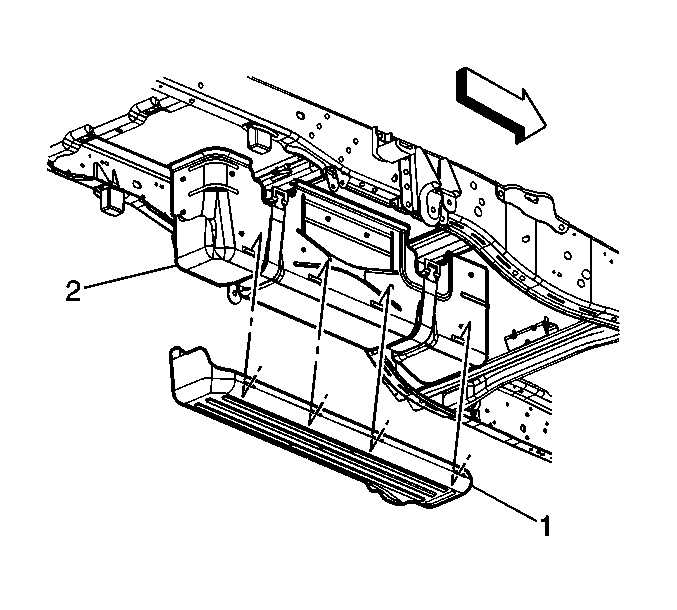
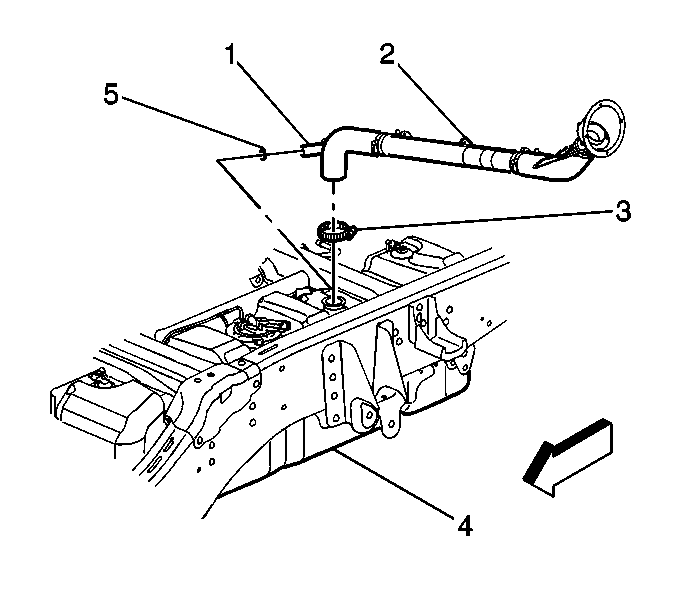
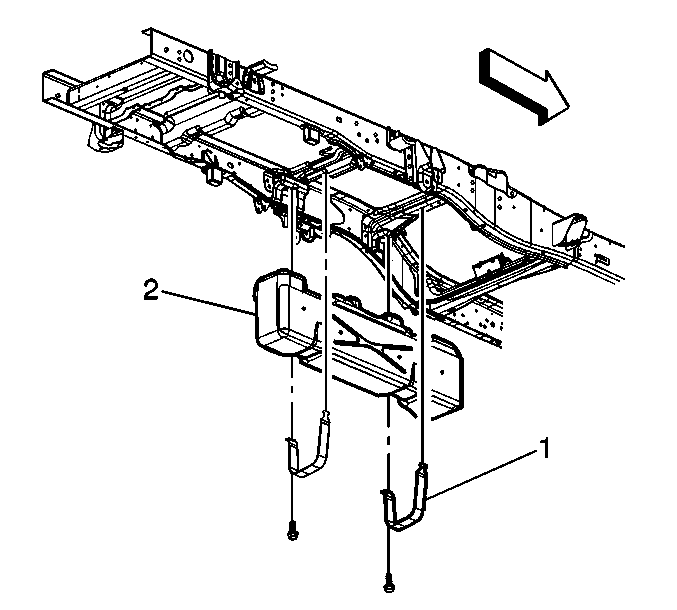
Installation Procedure
- Install the fuel sender assembly to the fuel tank. Refer to Fuel Sender Assembly Replacement .
- Remove the caps from the fuel and EVAP pipes.
- With the aid of an assistant, support and partially raise the fuel tank.
- Connect the fuel sender and the fuel pressure sensor harness connectors.
- Connect the fuel and EVAP pipes. Refer to Metal Collar Quick Connect Fitting Service .
- Fully raise the fuel tank (2).
- Install the fuel tank straps (1).
- Install the fuel tank strap attaching bolts.
- Connect the fuel fill and vent pipe (2) to the fuel tank.
- Install the fuel tank shield (1).
- Lower the vehicle.
- Refill the fuel tank (2).
- Install the fuel filler cap.
- Connect the negative battery cable. Refer to Battery Negative Cable Disconnection and Connection in Engine Electrical.
- Use the following procedure in order to inspect for leaks:
- Install the engine sight shield. Refer to Upper Intake Manifold Sight Shield Replacement in Engine Mechanical.

Notice: Use the correct fastener in the correct location. Replacement fasteners must be the correct part number for that application. Fasteners requiring replacement or fasteners requiring the use of thread locking compound or sealant are identified in the service procedure. Do not use paints, lubricants, or corrosion inhibitors on fasteners or fastener joint surfaces unless specified. These coatings affect fastener torque and joint clamping force and may damage the fastener. Use the correct tightening sequence and specifications when installing fasteners in order to avoid damage to parts and systems.
Tighten
Tighten the bolts to 40 N·m (30 lb ft).

Tighten
Tighten the hose clamps to 2.5 N·m (22 lb in).

| 15.1. | Turn ON the ignition, with the engine OFF, for 2 seconds. |
| 15.2. | Turn OFF the ignition for 10 seconds. |
| 15.3. | Turn ON the ignition, with the engine OFF. |
| 15.4. | Inspect for fuel leaks. |
Fuel Tank Replacement Cab/Chassis - Rear
Removal Procedure
- Relieve the fuel system pressure. Refer to the Fuel Pressure Relief .
- Raise the vehicle. Refer to Lifting and Jacking the Vehicle in General Information.
- Drain the fuel tank. Refer to Fuel Tank Draining .
- Remove the fuel tank shield (2).
- Disconnect the fuel fill and vent pipe (1) from the fuel tank.
- With the aid of an assistant, support the fuel tank.
- Remove the fuel tank strap attaching bolts (2).
- Remove the fuel tank straps (3).
- Carefully lower the fuel tank slightly.
- Disconnect the fuel and evaporative emission (EVAP) pipes. Refer to Metal Collar Quick Connect Fitting Service .
- Disconnect the fuel sender and the fuel pressure sensor harness connectors.
- Remove the fuel tank.
- Place the fuel tank in a suitable work area.
- Remove the fuel sender assembly from the fuel tank. Refer to Fuel Sender Assembly Replacement .
- Cap the fuel and EVAP pipes in order to prevent possible fuel system contamination.
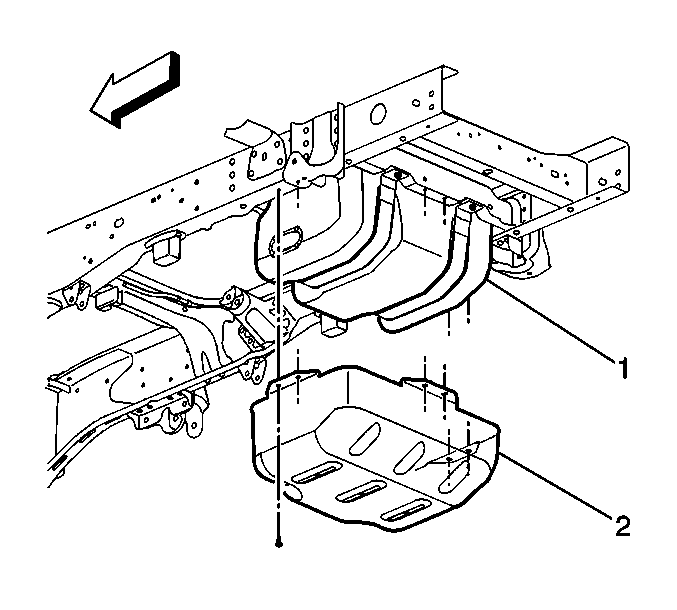
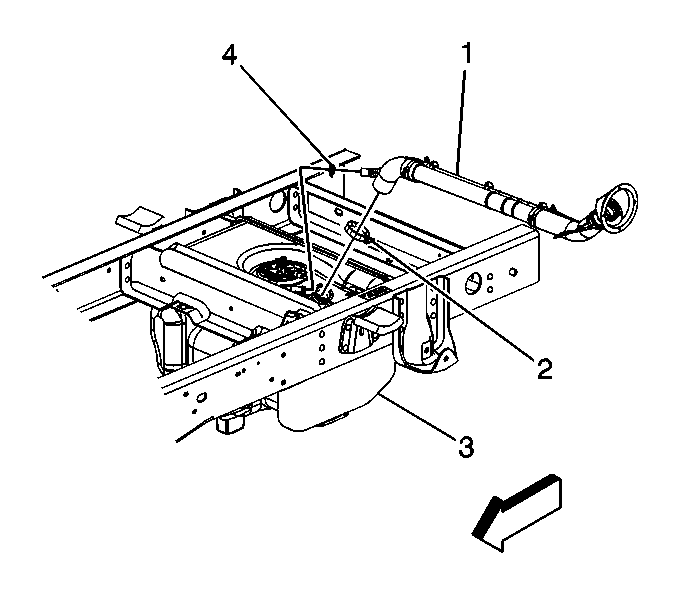
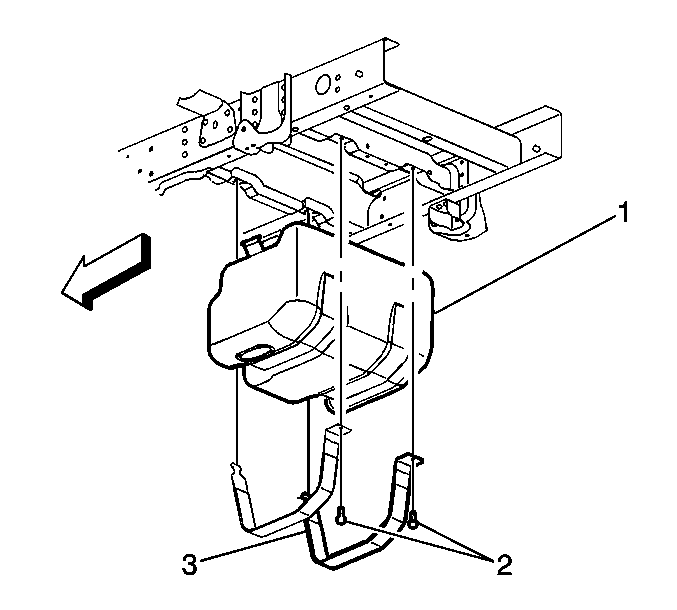
Installation Procedure
- Install the fuel sender assembly to the fuel tank. Refer to Fuel Sender Assembly Replacement .
- Remove the caps from the fuel and EVAP pipes.
- With the aid of an assistant, support and partially raise the fuel tank.
- Connect the fuel sender and the fuel pressure sensor harness connectors.
- Connect the fuel and EVAP pipes. Refer to Metal Collar Quick Connect Fitting Service .
- Fully raise the fuel tank.
- Install the fuel tank straps (3).
- Install the fuel tank strap attaching bolts (2).
- Connect the fuel fill and vent pipe (1) to the fuel tank.
- Install the fuel tank shield (2).
- Lower the vehicle.
- Refill the fuel tank.
- Install the fuel filler cap.
- Connect the negative battery cable. Refer to Battery Negative Cable Disconnection and Connection in Engine Electrical.
- Use the following procedure in order to inspect for leaks:
- Install the engine sight shield. Refer to Upper Intake Manifold Sight Shield Replacement in Engine Mechanical.

Notice: Use the correct fastener in the correct location. Replacement fasteners must be the correct part number for that application. Fasteners requiring replacement or fasteners requiring the use of thread locking compound or sealant are identified in the service procedure. Do not use paints, lubricants, or corrosion inhibitors on fasteners or fastener joint surfaces unless specified. These coatings affect fastener torque and joint clamping force and may damage the fastener. Use the correct tightening sequence and specifications when installing fasteners in order to avoid damage to parts and systems.
Tighten
Tighten the bolts to 40 N·m (30 lb ft).

Tighten
Tighten the hose clamps to 2.5 N·m (22 lb in).

Tighten
Tighten the fuel tank shield to frame bolts to 18 N·m (13 lb ft)
| 15.1. | Turn ON the ignition, with the engine OFF, for 2 seconds. |
| 15.2. | Turn OFF the ignition for 10 seconds. |
| 15.3. | Turn ON the ignition, with the engine OFF. |
| 15.4. | Inspect for fuel leaks. |
